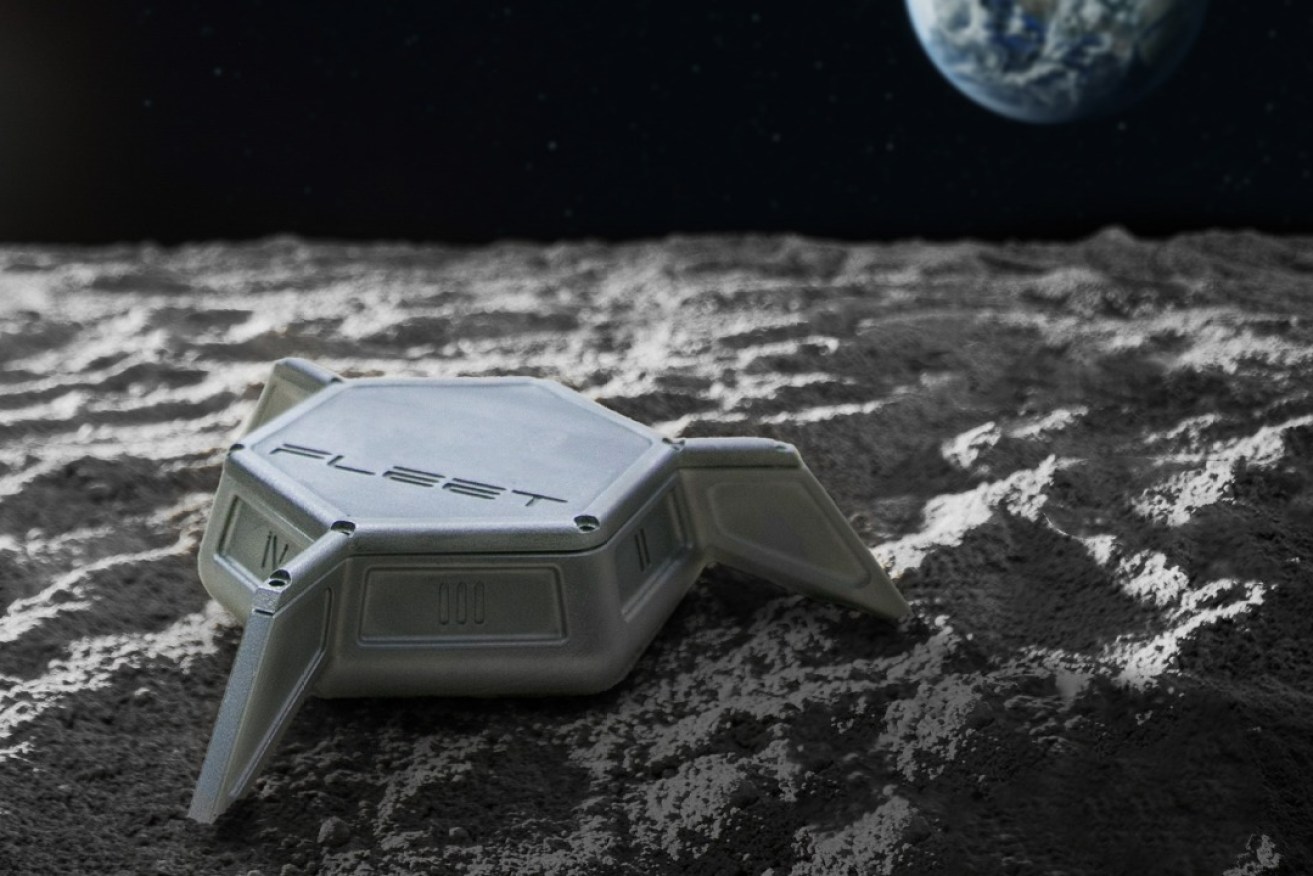Earth observation scrapped while Moon gets tick
On the same day that the Federal Government scrapped the much-touted sovereign satellite project, a local space company has been funded to test technology to explore for minerals on the Moon.


Fleet Space will use its mineral exploration technology to develop the SPIDER project to locate resources on the Moon. Artist impression: supplied
Fleet Space Technologies has been awarded a $4m contract with the Australian Space Agency as part of the agency’s “Moon to Mars: Demonstrator” program.
Fleet Chief Exploration Officer and Co-Founder Matthew Pearson said Fleet will use the direct-to-satellite seismic arrays technology it has developed to find minerals on Earth to create a device tailored for Lunar and Martian exploration.
“Fleet is currently deploying several direct-to-satellite seismic arrays and intends to leverage this Earth capability into a device suitable for lunar and Martian environments. The solution is non-invasive and super scalable and can potentially be mounted to mini rovers for future missions,” he said.
The Australian Space Agency funding is part of 7 Sisters, an Australian mission to explore the Moon and Mars.
The news came on the same day that the government announced the National Space Mission for Earth Observation (NSMEO) would be halted as part of its “budget repair”.
The $1.2 billion mission was to launch up to four Australian designed and built satellites to gather data on agriculture, climate and marine surveillance in what was touted as much-needed sovereign capability for the country.
The space industry expressed dismay after the latest budget decreased spending on projects, including the Spaceport Program and a key supply chain sub-program of the Moon to Mars program overseen by the Australian Space Agency that is headquartered at Lot Fourteen in Adelaide.
The grant contract for Fleet Space will see the Beverley-based company take part in the Seismic Payload for Interplanetary Discovery, Exploration and Research (SPIDER) project to enable resource exploration for future human habitation of the Moon and, eventually, Mars.
SPIDER is a three-component seismic station set to be deployed on the surface of the Moon’s South Pole.
Designed to record continuous seismic data for up to 14 days, the device will be launched aboard a commercial lander.
Fleet Space’s proposal was among 10 projects selected to share in $40m under the Demonstrator Program of the Moon to Mars initiative. The funding is designed to assist companies to get their technologies ready for space.
Pearson said the successful delivery of the project will demonstrate the company’s ability to produce geophysical devices for future lunar and Martian geophysical exploration missions.
“With this significant contract from the Australian Space Agency, we are poised to be the first Australian technology to touch down on the surface of the Moon, supporting humanity’s efforts towards colonisation and aligning with NASA’s Artemis program, with a future vision of Martian exploration supporting the hunt for life beyond our planet,” he said.
There was no indication if the announced cut to the sovereign satellite program would impact the building of the $66m Australian Space Park at Adelaide Airport.




